
Düsseldorf: The Jewel of the Rhine
Düsseldorf, the vibrant capital of North Rhine-Westphalia, is a dynamic city that seamlessly blends tradition with modernity. Known for its fashion scene, art galleries, and electrifying nightlife, it offers a rich tapestry of experiences for every traveler. The city's Altstadt, or Old Town, is fondly called 'the longest bar in the world' with over 300 pubs, bars, and restaurants. Here, you can savor the local brew, Altbier, and immerse yourself in the lively atmosphere. Walk along the Königsallee, a boulevard famed for its luxury boutiques and picturesque canal, often referred to as the 'Kö' by locals. This shopping paradise is one of Europe’s most exclusive retail streets. Art enthusiasts will be thrilled by the numerous museums and galleries, including the Kunstsammlung Nordrhein-Westfalen, which houses a splendid collection of modern art. Nature lovers will delight in the serene beauty of the Rhine Promenade, perfect for a leisurely stroll or a scenic bike ride. The Japanese Garden in Nordpark offers a tranquil retreat, showcasing Düsseldorf’s multicultural essence. For panoramic views of the city, head to the Rheinturm, the iconic TV tower, which also features a revolving restaurant. Düsseldorf is also a city of festivals, with its famous Carnival drawing crowds with its parades and celebrations. The city's international flair is evident in its culinary scene, which boasts a variety of global cuisines. Whether you are here for the culture, the shopping, or the scenic views, Düsseldorf promises a memorable visit.
Local tips in Dusseldorf
- Try Altbier at a traditional brewery in the Altstadt.
- Visit the Königsallee early in the morning to avoid crowds.
- Take a river cruise on the Rhine for unique city views.
- Check local event calendars for festivals and special events.
- Use public transport for convenient and efficient city travel.
Neighbourhoods in Dusseldorf
Düsseldorf: The Jewel of the Rhine
Düsseldorf, the vibrant capital of North Rhine-Westphalia, is a dynamic city that seamlessly blends tradition with modernity. Known for its fashion scene, art galleries, and electrifying nightlife, it offers a rich tapestry of experiences for every traveler. The city's Altstadt, or Old Town, is fondly called 'the longest bar in the world' with over 300 pubs, bars, and restaurants. Here, you can savor the local brew, Altbier, and immerse yourself in the lively atmosphere. Walk along the Königsallee, a boulevard famed for its luxury boutiques and picturesque canal, often referred to as the 'Kö' by locals. This shopping paradise is one of Europe’s most exclusive retail streets. Art enthusiasts will be thrilled by the numerous museums and galleries, including the Kunstsammlung Nordrhein-Westfalen, which houses a splendid collection of modern art. Nature lovers will delight in the serene beauty of the Rhine Promenade, perfect for a leisurely stroll or a scenic bike ride. The Japanese Garden in Nordpark offers a tranquil retreat, showcasing Düsseldorf’s multicultural essence. For panoramic views of the city, head to the Rheinturm, the iconic TV tower, which also features a revolving restaurant. Düsseldorf is also a city of festivals, with its famous Carnival drawing crowds with its parades and celebrations. The city's international flair is evident in its culinary scene, which boasts a variety of global cuisines. Whether you are here for the culture, the shopping, or the scenic views, Düsseldorf promises a memorable visit.
When is the best time to go to Dusseldorf?
Iconic landmarks you can’t miss
Rhine Tower
Experience Düsseldorf from Above: Ascend the Rhine Tower for breathtaking panoramic views, a revolving restaurant, and the world's largest digital clock illuminating the city skyline.
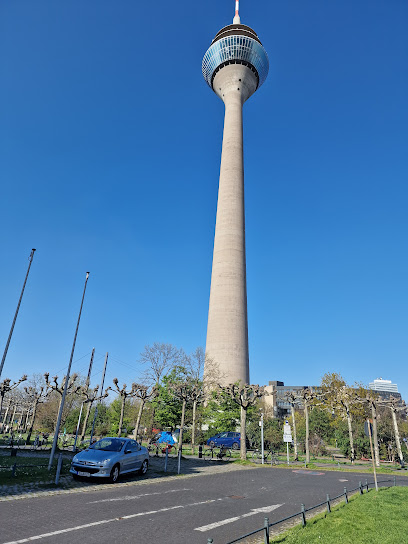
Schloss Benrath
Discover Schloss Benrath, Düsseldorf's Baroque masterpiece: Explore opulent interiors, wander through 아름다운 gardens, and immerse yourself in 18th-century elegance and rich history.
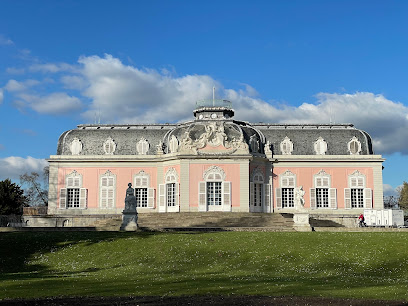
Hofgarten
Discover Düsseldorf's oldest public park, a green oasis blending history, art, and nature, offering a serene escape in the heart of the city since 1769.
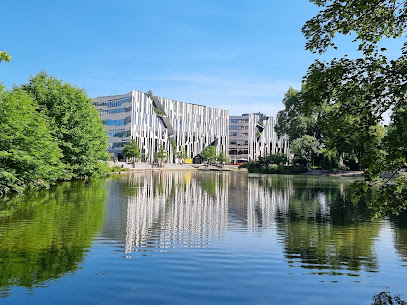
Burgplatz
Discover Düsseldorf's Burgplatz: A historic square where the past meets the present, offering stunning Rhine views, cultural events, and a vibrant gateway to the Altstadt's charm.
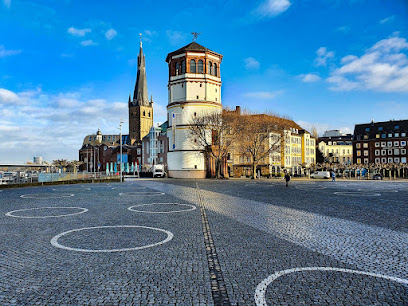
Japanese Garden
Discover tranquility in Düsseldorf's Japanese Garden: a serene oasis in Nordpark embodying Japanese culture and horticultural artistry, a testament to German-Japanese friendship.
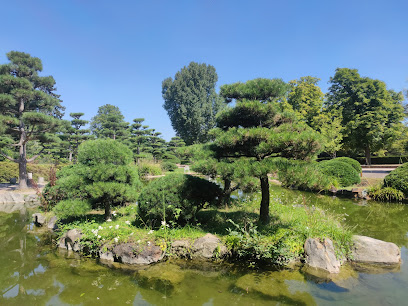
Rheinuferpromenade Düsseldorf
Stroll along Düsseldorf's Rhine River promenade, where history meets modern charm, offering stunning views, vibrant culture, and a taste of the city's lively spirit.
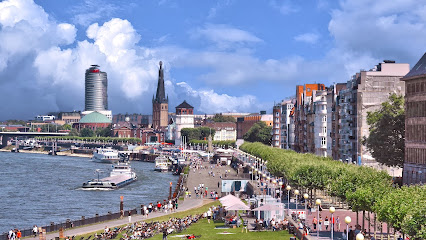
Kaiserpfalz Kaiserswerth
Discover the ruins of Kaiserpfalz Kaiserswerth in Düsseldorf, a historic imperial palace on the Rhine, offering a glimpse into Germany's medieval past and imperial grandeur.
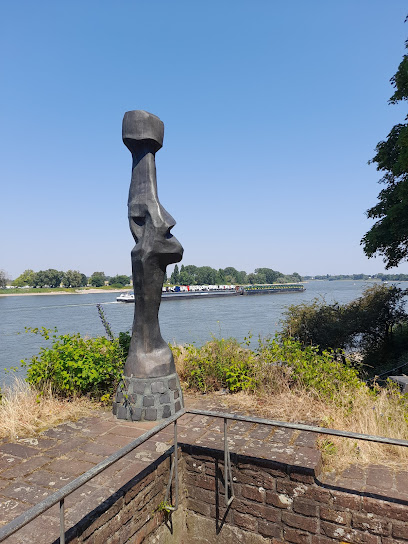
Rheintreppe
Experience Düsseldorf's riverside charm at the Rheintreppe: where history meets modern vibrancy on the banks of the Rhine, offering stunning views and a lively atmosphere.
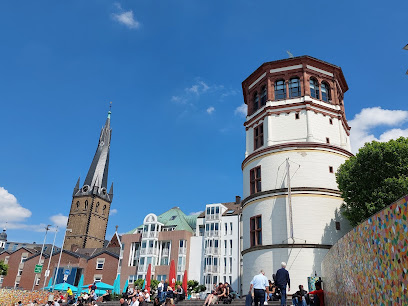
Botanical Garden
Explore a world of botanical wonders at Düsseldorf's Botanical Garden: a serene escape showcasing diverse plant collections, research, and educational experiences for all ages.
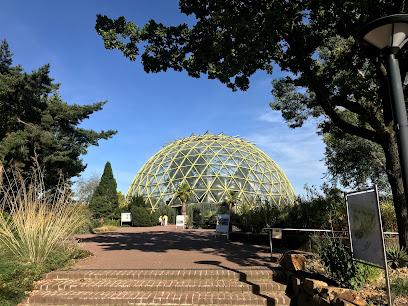
Marktplatz
Discover Düsseldorf's Marktplatz, a historic square in the heart of the Old Town, where stunning architecture, vibrant events, and the iconic Jan Wellem statue await, offering a true taste of the city's spirit.
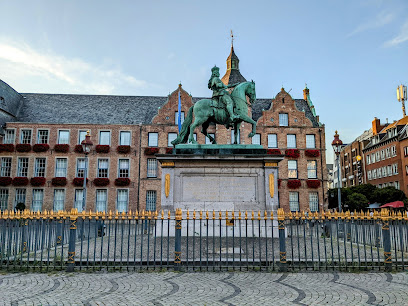
Gehry Bauten
Experience the architectural marvel of Frank Gehry's deconstructivist buildings in Düsseldorf's Media Harbour, a symbol of innovation and urban renewal on the Rhine.
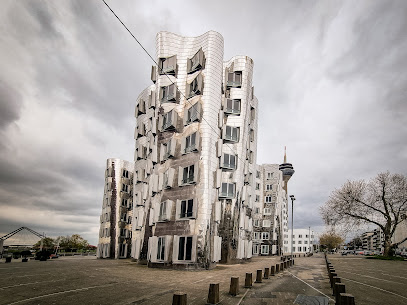
Rheinuferpromenade
Experience Düsseldorf's vibrant heart on the Rheinuferpromenade: a scenic riverfront promenade blending history, culture, and modern charm with stunning views and lively events.
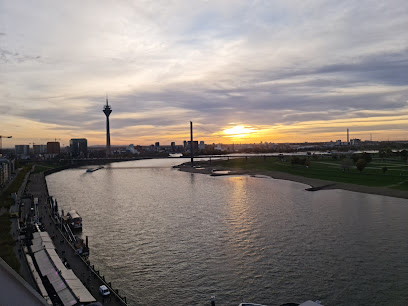
Stadterhebungsmonument
Discover Düsseldorf's history at the Stadterhebungsmonument, a bronze sculpture in the heart of the Old Town, commemorating the city's elevation to city status in 1288.
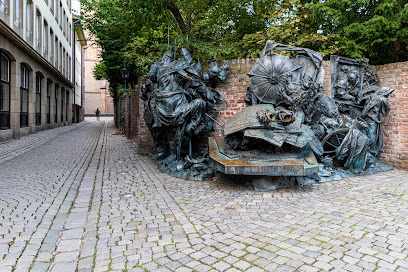
Ratinger Tor
Discover Düsseldorf's historical gateway, the Ratinger Tor, a neoclassical masterpiece connecting the city's vibrant heart with its serene Hofgarten.
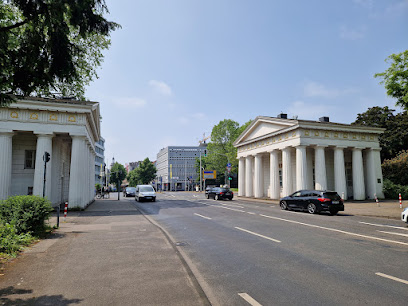
Jan-Wellem-Reiterstandbild
Discover Düsseldorf's baroque heart at the Jan Wellem Equestrian Statue, a timeless monument to a beloved ruler and the city's golden age of arts and culture, located in the heart of the Old Town.
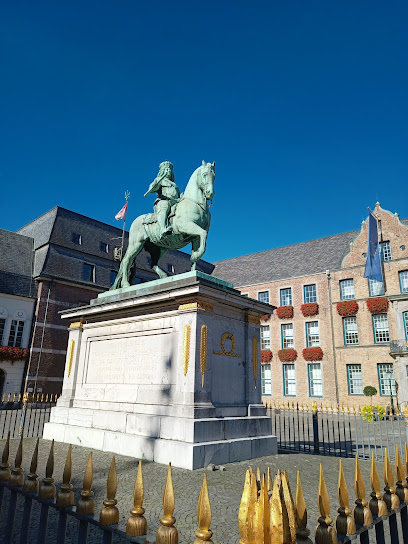
Unmissable attractions to see
Cologne Cathedral
Explore the grandeur of Cologne Cathedral, a Gothic masterpiece and UNESCO World Heritage Site, at the heart of Germany's cultural capital.
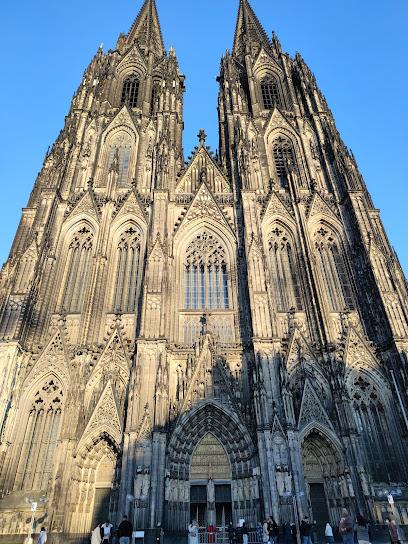
Lindt Chocolate Museum
Explore the rich heritage of chocolate at Cologne's Lindt Chocolate Museum, where history meets indulgence in every delicious bite.
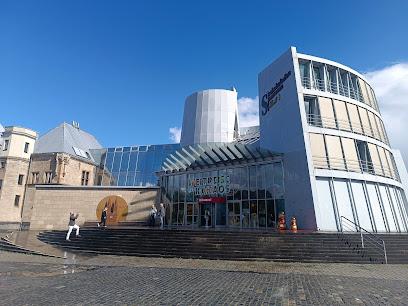
Lanxess Arena
Experience thrilling events at Lanxess Arena, a premier venue for concerts and sports in the heart of Cologne, Germany.
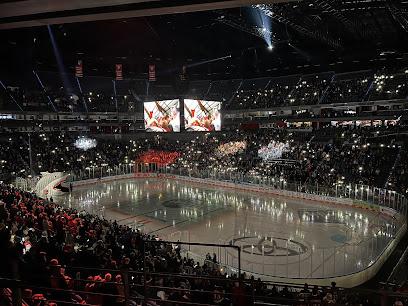
Cologne Zoological Garden
Discover the enchanting wildlife and conservation efforts at Cologne Zoological Garden, a top tourist attraction in Germany with over 700 species.
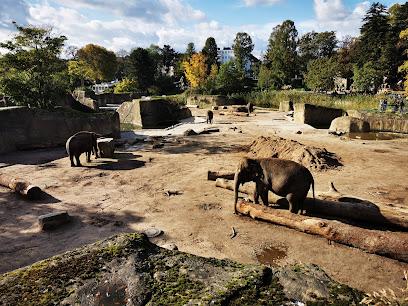
Cologne Fair
Discover the vibrant Cologne Fair, Germany's leading exhibition center, where innovation meets culture in the heart of Cologne.
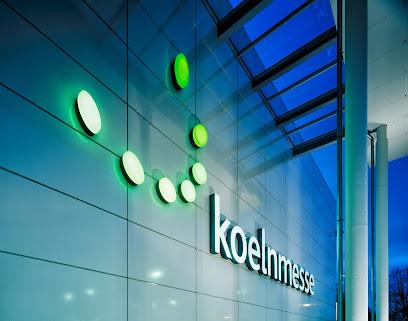
Zollverein UNESCO World Heritage Site
Explore the UNESCO-listed Zollverein World Heritage Site in Essen, where industrial history meets modern cultural vibrancy in a stunning architectural setting.
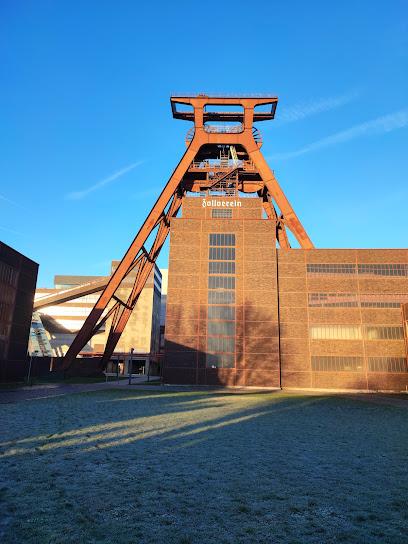
Starlight Express theatre
Discover the enchanting world of Starlight Express Theatre in Bochum, where thrilling performances and roller-skating magic await every visitor.
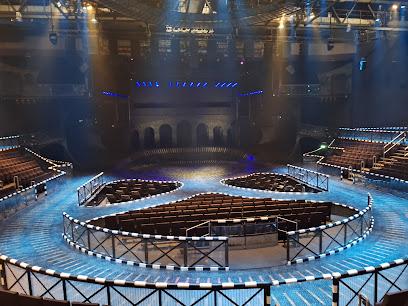
BORUSSIA-PARK
Experience the thrill of football at Borussia-Park, Mönchengladbach's iconic stadium, where passion and history collide in every match.
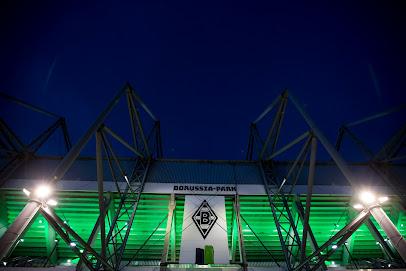
Cinedom
Explore Cinedom in Cologne for an unforgettable cinematic experience with the latest films and state-of-the-art technology in a vibrant cultural hub.
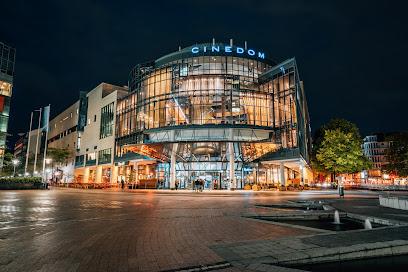
Aquazoo Löbbecke Museum Dusseldorf
Explore the Aquazoo Löbbecke Museum in Düsseldorf, where aquatic wonders and natural history come together for a family-friendly experience.
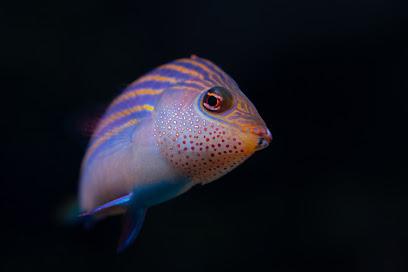
Burg Castle
Discover the enchanting Burg Castle in Solingen, a historical treasure featuring breathtaking views, rich history, and stunning architecture.
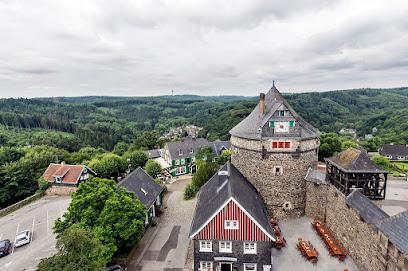
Aquazoo Löbbecke Museum Dusseldorf
Explore the Aquazoo Löbbecke Museum in Düsseldorf, a mesmerizing blend of aquarium and natural history museum showcasing diverse ecosystems.
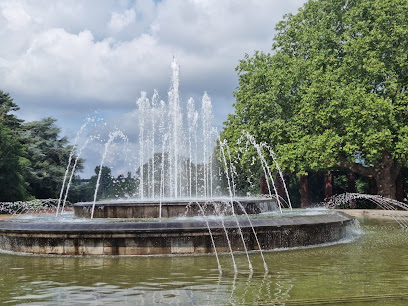
Classic Remise Düsseldorf
Explore Classic Remise Düsseldorf, a premier destination for classic car enthusiasts featuring stunning automobiles, engaging events, and a vibrant automotive community.
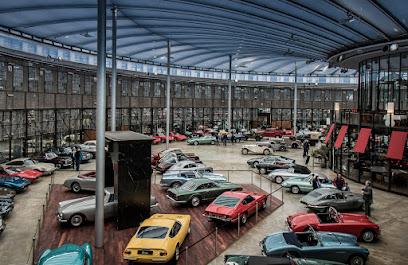
Schloss Benrath
Experience the beauty of Schloss Benrath, a Baroque masterpiece in Düsseldorf, surrounded by stunning gardens and rich cultural history.
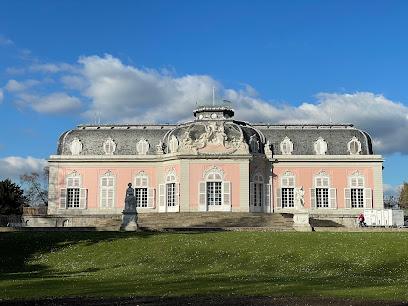
Erlebnisbauernhof Gertrudenhof
Discover the enchanting Erlebnisbauernhof Gertrudenhof in Hürth, a delightful farmers' market and animal park that promises fun for the whole family.
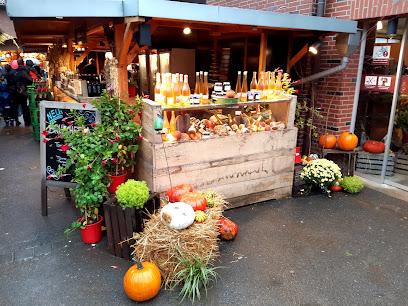
Essential places to dine
BLOCK HOUSE Düsseldorf
Indulge in top-notch steaks at BLOCK HOUSE Düsseldorf - where flavor meets hospitality in a warm and inviting setting.
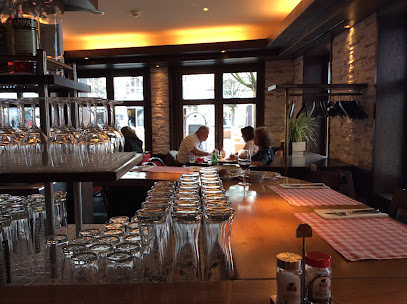
Bob & Mary
Experience gourmet burgers at Bob & Mary in Düsseldorf – where quality meets creativity in every bite!
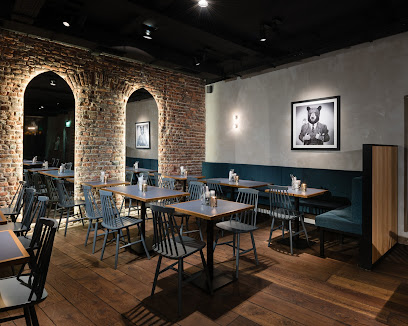
Louisiana Düsseldorf Altstadt
Discover Louisiana Düsseldorf Altstadt: A premier destination for American cuisine and vibrant nightlife in Düsseldorf's historic district.
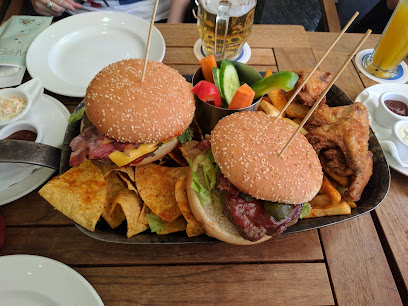
MEERBAR Restaurant
Discover Mediterranean elegance at MEERBAR Restaurant in Düsseldorf – where fresh seafood meets stunning waterfront views.
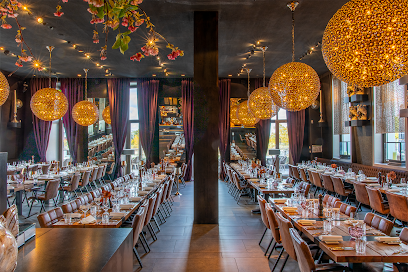
Palito Restaurant Düsseldorf
Experience authentic Latin American flavors at Palito Restaurant in Düsseldorf - where every meal is a celebration of taste and culture.
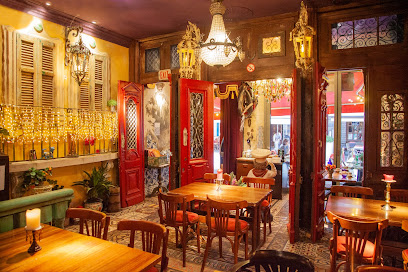
Schweine Janes Altstadt
Experience authentic German cuisine at Schweine Janes Altstadt in Düsseldorf's historic old town - a true culinary delight!
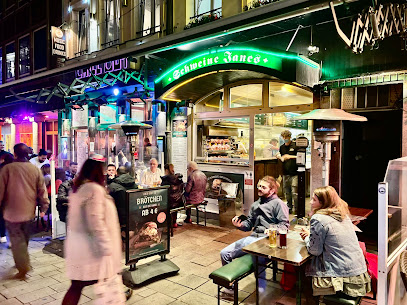
Schwan Restaurant Düsseldorf Altstadt
Experience authentic German flavors at Schwan Restaurant in Düsseldorf's historic Altstadt—where every meal tells a story.
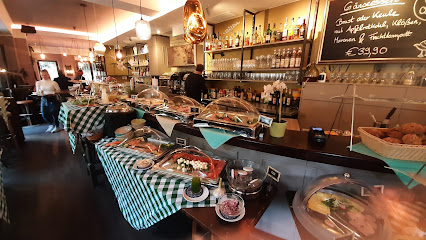
Mongo's Restaurant Düsseldorf
Discover the vibrant flavors of Asia at Mongo's Restaurant Düsseldorf - where Mongolian barbecue meets unforgettable dining experiences.
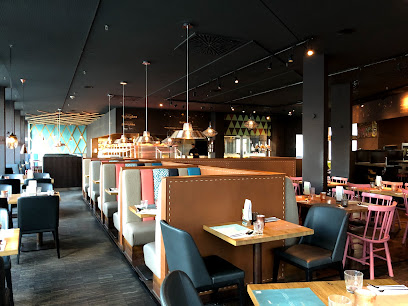
Casita Mexicana
Savor authentic Mexican flavors in Düsseldorf at Casita Mexicana - where every meal is a fiesta!
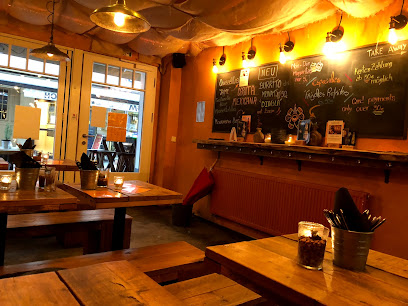
QOMO Restaurant & Bar
Discover exquisite fusion cuisine at QOMO Restaurant & Bar in Düsseldorf - where global flavors meet culinary artistry.
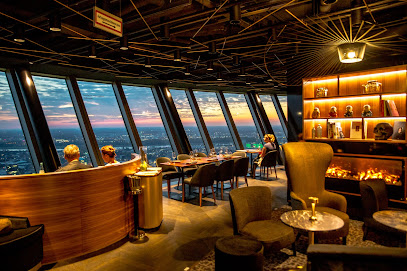
Sila-Thai
Experience authentic Thai cuisine at Sila-Thai in Düsseldorf, where every dish is crafted with passion and tradition.
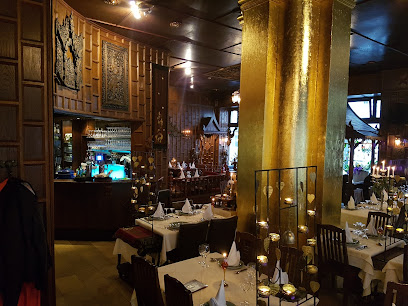
Las Tapas - Düsseldorf
Experience authentic Spanish cuisine at Las Tapas in Düsseldorf – where every dish tells a story of flavor and tradition.
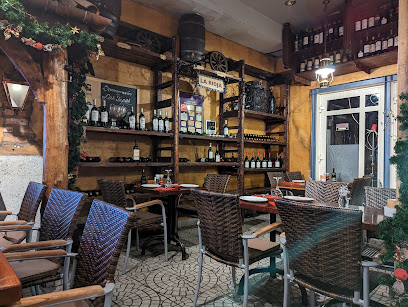
Oktopussy Bar & Restaurant
Discover Oktopussy Bar & Restaurant in Düsseldorf: A vibrant culinary hotspot offering fresh seafood and creative cocktails in a stylish setting.
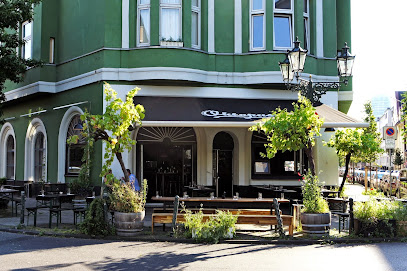
El Amigo - Düsseldorf
Experience authentic Spanish cuisine and premium steaks at El Amigo in Düsseldorf - where every meal is a fiesta!
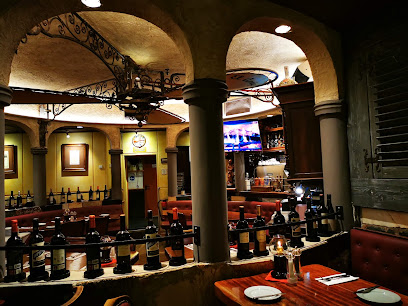
eatDOORI Restaurant - Indisches Restaurant Düsseldorf
Experience authentic Indian cuisine at eatDOORI Restaurant in Düsseldorf - where tradition meets flavor!
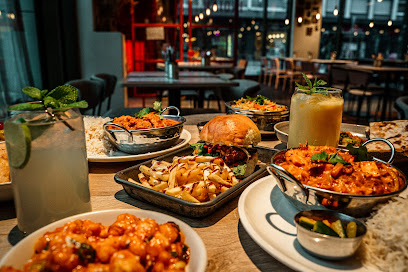
Markets, malls and hidden boutiques
KÖ Shopping Mall
Experience shopping like never before at KÖ Shopping Mall, Düsseldorf's ultimate destination for luxury fashion, unique accessories, and delightful dining.
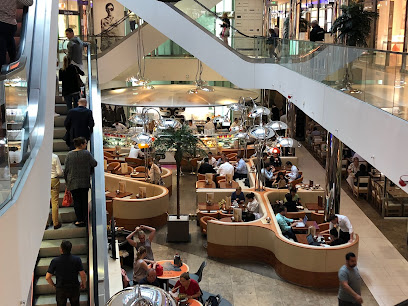
Schadow-Arkaden
Explore Schadow-Arkaden, Düsseldorf's premier shopping mall, where fashion, dining, and entertainment meet in a vibrant atmosphere.
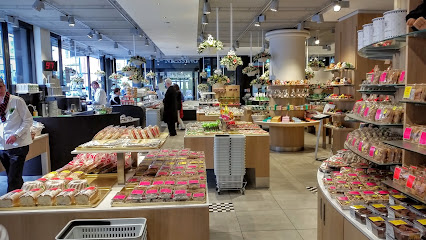
GALERIA Düsseldorf Königsallee
Experience unparalleled shopping at GALERIA Düsseldorf Königsallee, where luxury meets a vibrant retail atmosphere in the heart of the city.
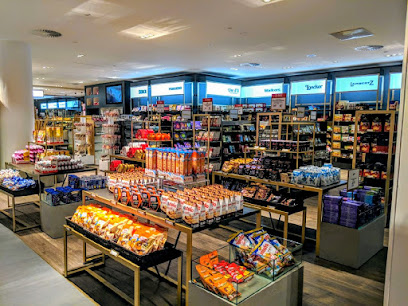
Breuninger Düsseldorf
Experience luxury shopping at Breuninger Düsseldorf, where fashion meets elegance in the heart of the city.
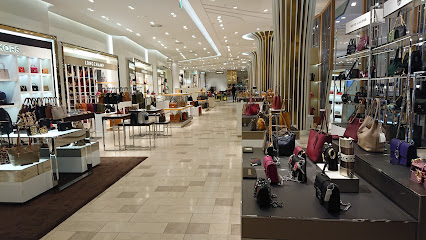
Sevens
Experience luxury shopping at Sevens in Düsseldorf, where high-end boutiques and gourmet dining create an unmatched retail experience.
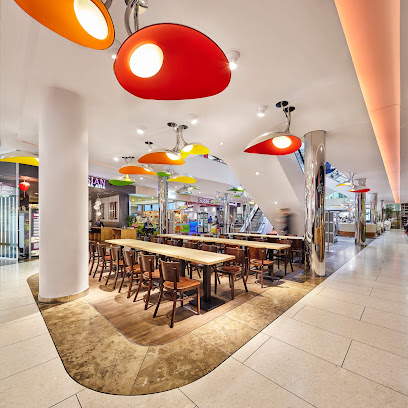
Louis Vuitton Düsseldorf
Discover unparalleled luxury shopping at Louis Vuitton Düsseldorf, featuring exquisite leather goods, fashion accessories, and fine jewelry in a stunning setting.
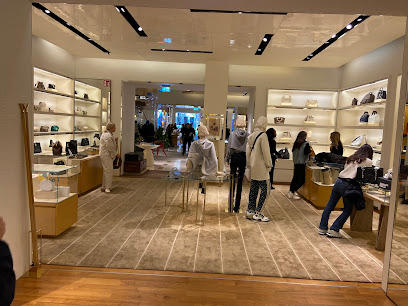
Rune Store Düsseldorf (Japanmeile)
Discover the enchanting world of trading cards, comics, and collectibles at Rune Store Düsseldorf, the ultimate shopping destination for enthusiasts.
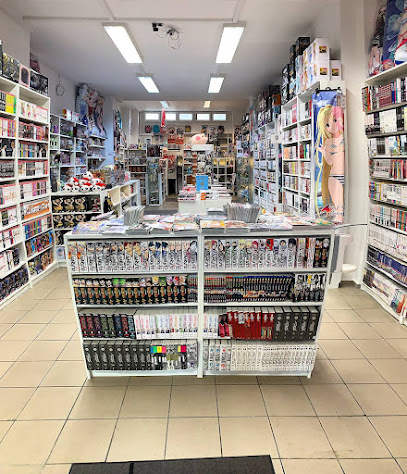
Gucci - Düsseldorf Konigsallee
Discover the luxury of Gucci on Düsseldorf's iconic Königsallee, a must-visit for fashion lovers seeking elegance and style.
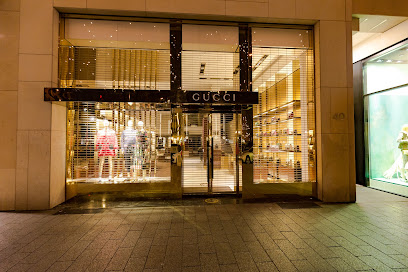
Unlicht - Die Düsseldorfer Szene-Boutique! Auf 200qm! Mittelalter, Gothic & mehr!
Explore Unlicht in Düsseldorf for an unparalleled shopping adventure featuring Gothic fashion, unique gifts, and mystical treasures.
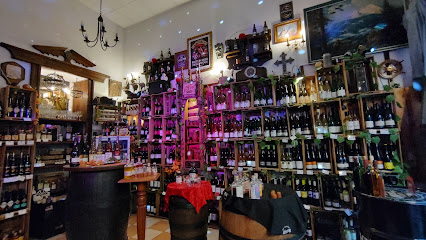
Urban Outfitters
Explore Urban Outfitters in Düsseldorf for trendy women's clothing and a unique shopping experience in a vibrant atmosphere.
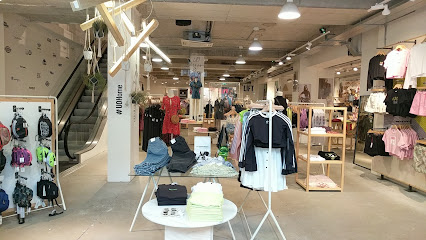
DIOR Düsseldorf Konigsallee
Discover the epitome of luxury fashion at DIOR Düsseldorf Königsallee - where style and sophistication meet in the heart of the city.
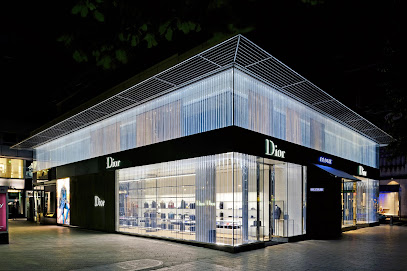
CHANEL BOUTIQUE DÜSSELDORF
Discover luxury and elegance at CHANEL Boutique Düsseldorf, where fashion meets sophistication on the renowned Königsallee.
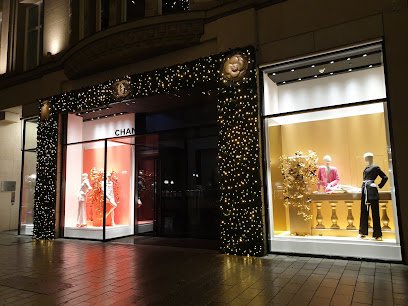
Vintage Paradise
Explore Vintage Paradise in Düsseldorf for a unique selection of vintage clothing, accessories, and decor that brings nostalgia to life.
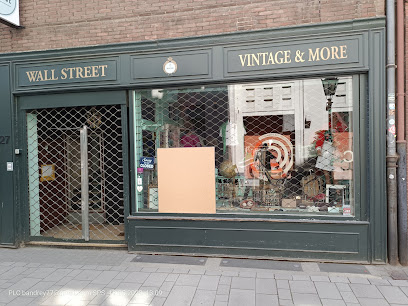
hessnatur Store Düsseldorf
Explore sustainable fashion at Hessnatur Store in Düsseldorf, offering a variety of eco-friendly clothing for all ages and styles.
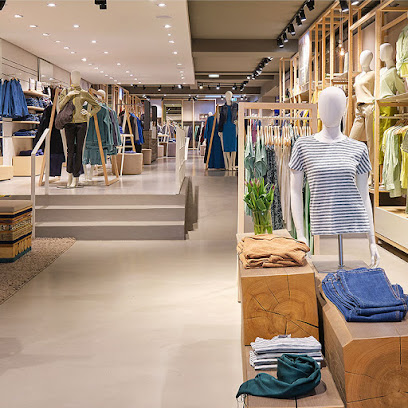
VERSACE
Discover luxury and elegance at Versace in Düsseldorf, where high fashion meets exquisite craftsmanship in a stunning shopping experience.
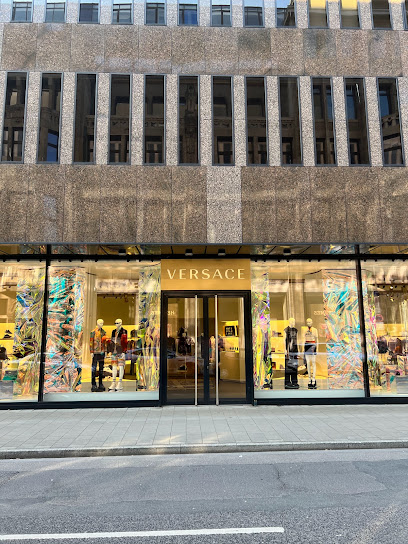
Essential bars & hidden hideouts
The Irish Pub Bei Fatty - Fatty's
Experience the vibrant atmosphere of The Irish Pub Bei Fatty in Düsseldorf, where traditional Irish fare meets lively entertainment.
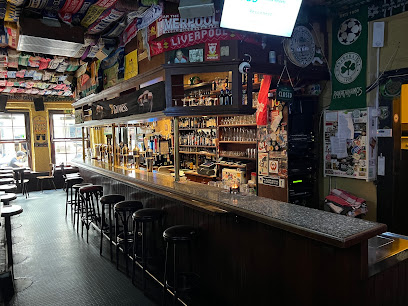
o’reilly’s Irish Pub & Restaurant
Discover the vibrant atmosphere of O'Reilly's Irish Pub & Restaurant in Düsseldorf, where authentic Irish cuisine meets lively entertainment.
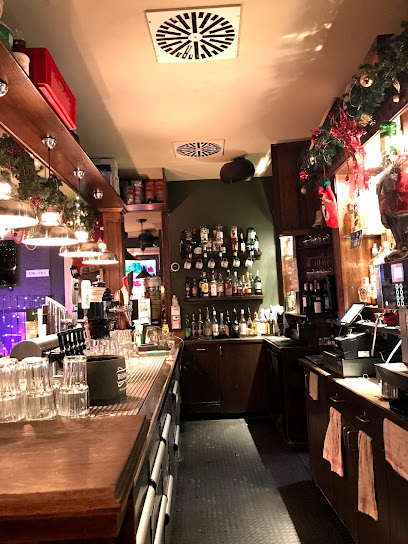
Dä Spiegel
Discover Düsseldorf’s culinary scene at Dä Spiegel, where traditional German flavors meet a vibrant gastropub atmosphere in the heart of the city.
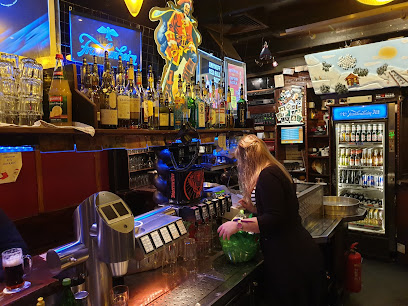
Barco Lounge Bar - Düsseldorf
Experience the vibrant ambiance and diverse menu at Barco Lounge Bar in Düsseldorf, where every visit is a celebration of flavors and good times.
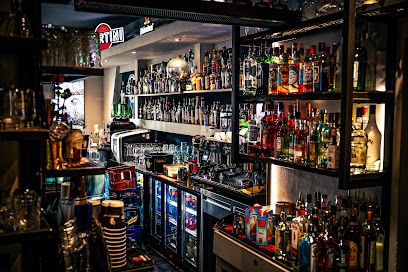
Holy Craft Beer Bar
Explore Düsseldorf's craft beer scene at Holy Craft Beer Bar, where unique flavors and a warm atmosphere await every visitor.
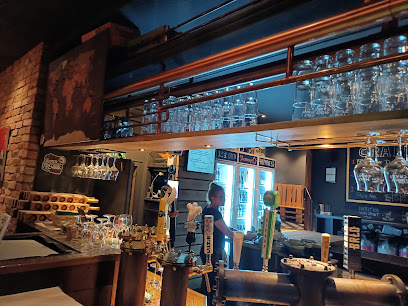
Sweetheart Düsseldorf
Experience the best of American cuisine at Sweetheart Düsseldorf, where vibrant atmosphere meets delicious flavors.
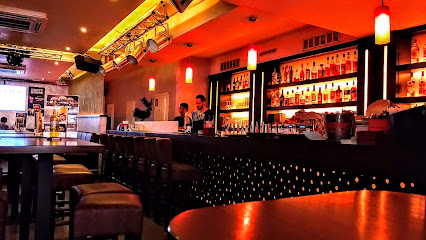
MAITAI Cocktailbar
Enjoy a tropical cocktail experience at MAITAI Cocktailbar, Düsseldorf's vibrant bar for cocktail lovers and night owls.
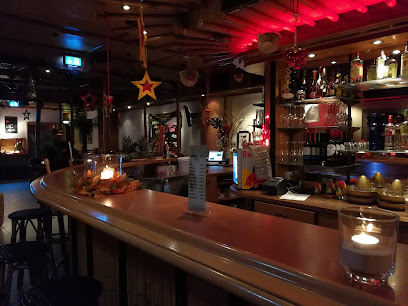
Siam Bar - Düsseldorf
Experience the vibrant nightlife at Siam Bar in Düsseldorf, where innovative cocktails and a lively atmosphere await.
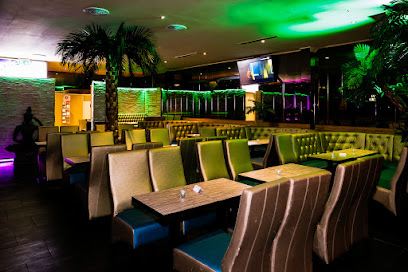
Schaukelstühlchen - Düsseldorf
Discover the authentic German pub experience at Schaukelstühlchen in Düsseldorf, where local brews and warm hospitality await.
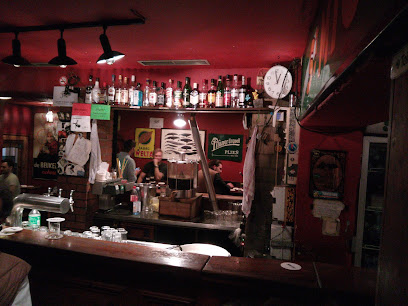
squarebar
Discover the vibrant nightlife of Düsseldorf at Squarebar, where expertly crafted cocktails meet a chic atmosphere for an unforgettable experience.
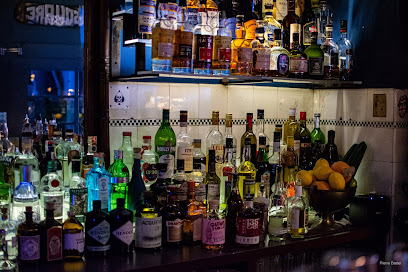
Bar Cherie - Düsseldorf
Experience the artistic charm and vibrant nightlife of Düsseldorf at Bar Cherie, your perfect destination for crafted cocktails and cozy ambiances.
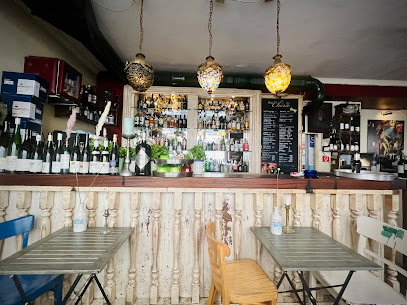
Elephant Bar - Düsseldorf
Discover Düsseldorf’s nightlife at Elephant Bar, where vibrant atmosphere meets an eclectic drink selection in a stylish setting.
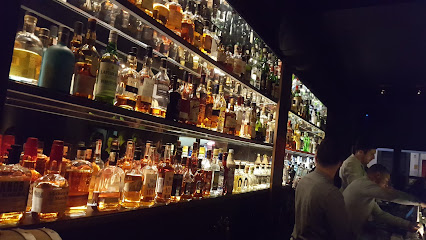
The Oak’s Bar - Düsseldorf
Explore the vibrant nightlife at The Oak’s Bar in Düsseldorf, where exquisite cocktails and live music create an unforgettable atmosphere.
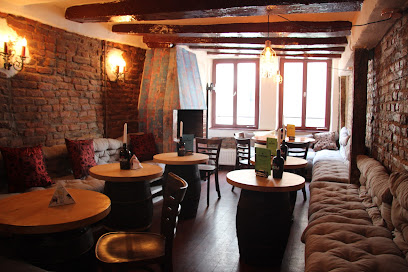
Boothby's Bar
Discover the vibrant atmosphere of Boothby's Bar in Düsseldorf, where unique cocktails and a cozy ambiance await every visitor.
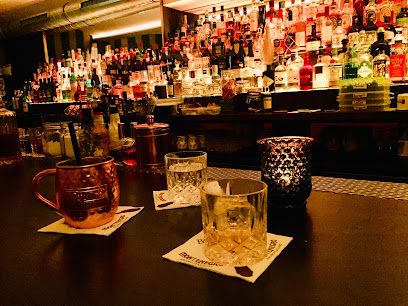
Local Phrases
-
- HelloHallo
[hah-loh] - GoodbyeAuf Wiedersehen
[owf vee-der-zay-en] - YesJa
[yah] - NoNein
[nine] - Please/You're welcomeBitte
[bih-teh] - Thank youDanke
[dahn-keh] - Excuse me/SorryEntschuldigung
[ent-shool-dee-goong] - How are you?Wie geht es Ihnen?
[vee gayt es ee-nen] - Fine. And you?Gut. Und Ihnen?
[goot oont ee-nen] - Do you speak English?Sprechen Sie Englisch?
[shpreh-ken zee eng-leesh] - I don't understandIch verstehe nicht
[ikh fer-shtay-eh neekt]
- HelloHallo
-
- I'd like to see the menu, pleaseIch würde gerne die Speisekarte sehen, bitte
[ikh vur-deh gehr-neh dee shpy-ze-kahr-teh zay-en, bih-teh] - I don't eat meatIch esse kein Fleisch
[ikh ess-eh kine fly-sh] - Cheers!Prost!
[prohst] - I would like to pay, pleaseIch möchte bitte zahlen
[ikh mehrk-teh bih-teh tsah-len]
- I'd like to see the menu, pleaseIch würde gerne die Speisekarte sehen, bitte
-
- Help!Hilfe!
[hill-feh] - Go away!Gehen Sie weg!
[geh-en zee vehk] - Call the Police!Rufen Sie die Polizei!
[roo-fen zee dee po-lee-tsai] - Call a doctor!Rufen Sie einen Arzt!
[roo-fen zee i-nen artsht] - I'm lostIch habe mich verlaufen
[ikh hah-beh mikh fer-lou-fen] - I'm illIch bin krank
[ikh been krunk]
- Help!Hilfe!
-
- I'd like to buy...Ich möchte ... kaufen
[ikh mehrk-teh ... kow-fen] - I'm just lookingIch schaue nur
[ikh shou-eh noor] - How much is it?Wie viel kostet es?
[vee feel kos-teht es] - That's too expensiveDas ist zu teuer
[dahs ist tsoo toy-er] - Can you lower the price?Können Sie den Preis senken?
[kern-en zee den preys zehn-ken]
- I'd like to buy...Ich möchte ... kaufen
-
- What time is it?Wie spät ist es?
[vee shpayt ist es] - It's one o'clockEs ist ein Uhr
[es ist iyn oor] - Half past (10)Halb zehn
[halb tsayn] - MorningMorgen
[mor-gen] - AfternoonNachmittag
[nah-kh-meet-tahk] - EveningAbend
[ah-bent] - YesterdayGestern
[geh-shtern] - TodayHeute
[hoi-teh] - TomorrowMorgen
[mor-gen] - 1Eins
[iyns] - 2Zwei
[tsvai] - 3Drei
[dry] - 4Vier
[feer] - 5Fünf
[fuenf] - 6Sechs
[zeks] - 7Sieben
[zee-ben] - 8Acht
[ahkt] - 9Neun
[noyn] - 10Zehn
[tsayn]
- What time is it?Wie spät ist es?
-
- Where's a/the...?Wo ist ein/der...?
[vo ist iyn/dehr] - What's the address?Was ist die Adresse?
[vas ist dee ah-dreh-seh] - Can you show me (on the map)?Können Sie mir das zeigen (auf der Karte)?
[kern-en zee meer dahs tsay-gen (ouf dehr kar-teh)] - When's the next (bus)?Wann kommt der nächste (Bus)?
[vahn kohmt dehr nekh-steh (boos)] - A ticket (to ....)Eine Fahrkarte (nach ...)
[iyn-eh fahr-kahr-teh (nakh ...)]
- Where's a/the...?Wo ist ein/der...?
History of Dusseldorf
-
Düsseldorf's origins date back to the early 12th century when it was first mentioned in a document in 1135. The city started as a small fishing village on the banks of the River Düssel, a tributary of the Rhine. By 1288, it received its city charter from Count Adolf VIII of Berg after a decisive victory at the Battle of Worringen. This marked the beginning of Düsseldorf's development into an important regional center.
-
From the 14th century onwards, Düsseldorf became the capital of the Duchy of Berg. The city's status grew under the rule of the Berg family, who developed it architecturally and economically. The construction of the St. Lambertus Church and the Old Town Hall during this period left a lasting architectural heritage. Düsseldorf flourished as a cultural and economic hub during this time.
-
The city underwent significant changes during the Napoleonic Wars. In 1806, Düsseldorf became part of the Grand Duchy of Berg, a Napoleonic satellite state. This brought about administrative reforms and modernization efforts. However, the fall of Napoleon led to Düsseldorf being incorporated into the Kingdom of Prussia in 1815, under which it continued to grow and industrialize.
-
The 19th century was a period of rapid industrialization for Düsseldorf. The city's strategic location along the Rhine made it a vital transportation and trade hub. Industries such as iron and steel, chemicals, and machinery thrived. Düsseldorf also became known for its art scene, with the establishment of the Düsseldorf School of Painting, which attracted artists from across Europe.
-
Düsseldorf, like many German cities, suffered extensive damage during World War II. Allied bombings in 1943-1945 destroyed much of the city's infrastructure and historical buildings. Post-war reconstruction efforts in the 1950s and 1960s focused on rebuilding the city while preserving its historical character. The recovery period saw Düsseldorf re-emerge as a key economic and cultural center in West Germany.
-
Today, Düsseldorf is a vibrant, modern metropolis known for its fashion industry, trade fairs, and cultural institutions. It hosts major events such as the Düsseldorf Carnival and the Japan Day celebration, reflecting its diverse and cosmopolitan character. The city is also a financial hub, home to numerous corporate headquarters and the Düsseldorf Stock Exchange. Despite its modernization, Düsseldorf retains a rich historical heritage, blending the old and new seamlessly.
Dusseldorf Essentials
-
Dusseldorf is well-connected by air, rail, and road. Dusseldorf International Airport (DUS) is the primary airport and is located about 7 kilometers from the city center. It offers flights to and from many major cities worldwide. For rail travelers, Dusseldorf Hauptbahnhof (main train station) is a major hub with frequent connections to other German cities and neighboring countries. The city is also accessible by car via the extensive German autobahn network.
-
Dusseldorf has an efficient public transportation system, including trams, buses, and U-Bahn (underground) trains, all operated by Rheinbahn. Tickets can be purchased at vending machines and must be validated before boarding. Taxis are readily available, and ride-sharing services like Uber also operate in the city. For a more leisurely experience, consider renting a bicycle; the city is bike-friendly with many dedicated lanes.
-
The official currency in Germany is the Euro (EUR). Credit and debit cards are widely accepted in hotels, restaurants, and shops, but it is advisable to carry some cash, especially for smaller establishments and local markets. ATMs are plentiful, and you can find them at banks, shopping centers, and train stations.
-
Dusseldorf is generally a safe city for tourists. However, standard precautions should be taken, such as avoiding poorly lit areas at night and keeping an eye on personal belongings in crowded places. Areas like the main train station and the Altstadt (Old Town) can be hotspots for pickpocketing, especially during weekends and festivals. Stay aware of your surroundings and avoid any confrontations.
-
In case of emergency, dial 112 for immediate assistance from police, fire, or ambulance services. Dusseldorf has several hospitals and clinics, including Universitätsklinikum Düsseldorf, which offers comprehensive medical services. Pharmacies are widely available and can provide over-the-counter medications. It is advisable to have travel insurance that covers medical emergencies.
-
Fashion: Do dress smartly, especially in upscale areas and restaurants. Avoid overly casual attire in formal settings. Religion: Do respect religious customs; for example, dress modestly when visiting churches. Public Transport: Do be punctual and respectful. Avoid loud conversations and giving up your seat for elderly passengers is appreciated. Greetings: Do greet people with a firm handshake and maintain eye contact. Titles are important, so use 'Herr' or 'Frau' followed by the last name unless invited to use the first name. Eating & Drinking: Do try local dishes and beers. Don't start eating until everyone is served and the host says 'Guten Appetit'.
-
To experience Dusseldorf like a local, visit the Carlsplatz Market for fresh produce and local delicacies. Explore the Altstadt, known as the 'longest bar in the world,' for its numerous pubs and traditional breweries. For a unique cultural experience, don't miss the annual Karneval, a vibrant and colorful festival. Lastly, take a leisurely stroll along the Rhine Promenade for stunning river views and a taste of local life.
Nearby Cities to Dusseldorf
-
Things To Do in Essen
-
Things To Do in Cologne
-
Things To Do in Bonn
-
Things To Do in Aachen
-
Things To Do in Maastricht
-
Things To Do in Genk
-
Things To Do in Nijmegen
-
Things To Do in Eindhoven
-
Things To Do in Munster
-
Things To Do in Spa
-
Things To Do in Arnhem
-
Things To Do in Hasselt
-
Things To Do in Liege
-
Things To Do in Koblenz
-
Things To Do in Durbuy

















